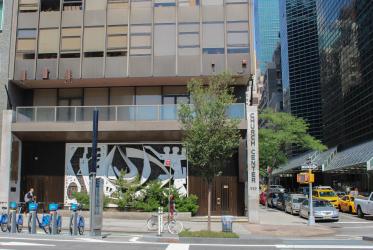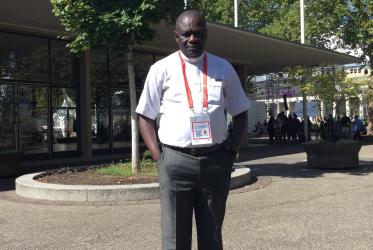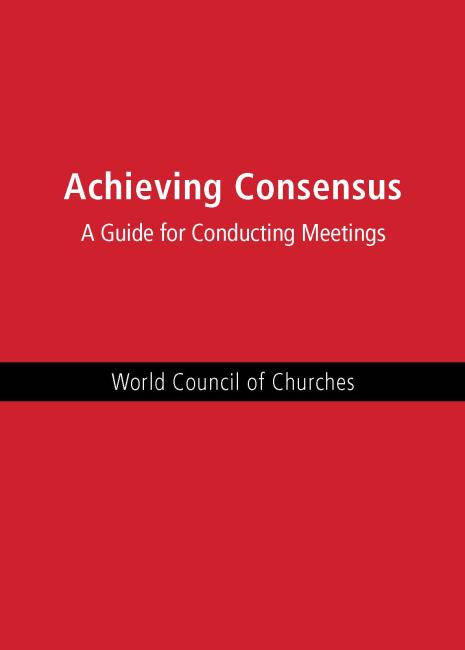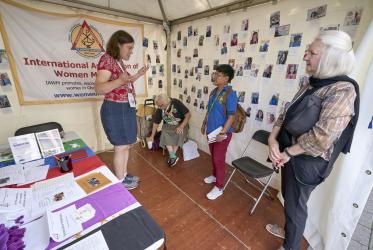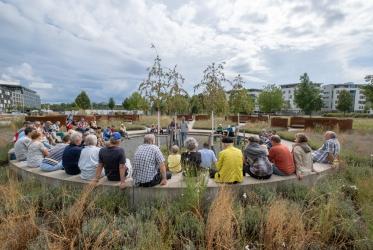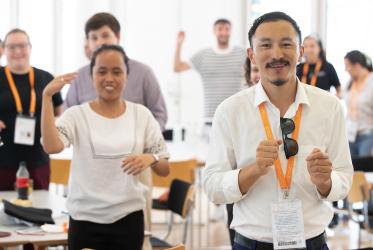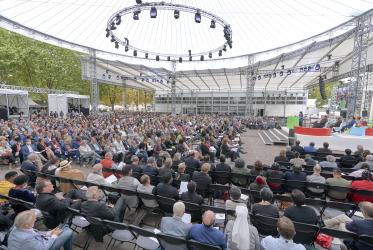Displaying 161 - 180 of 471
In New York City, the spirit of Thursdays in Black is thriving
06 October 2022
WCC 11th Assembly: safe and welcoming environment for all
19 September 2022
Assembly workshop looked toward ending AIDS epidemic by 2030
19 September 2022
Workshop explores how interreligious dialogue brings trust and respect
15 September 2022
Reflections from GETI underscore friendship coupled with knowledge
13 September 2022
Aspiring therapist opens his mind to different beliefs
13 September 2022
From hostility to hospitality: Closing prayers at Karlsruhe
09 September 2022
Ukraine: Responding to humanitarian need
08 September 2022
Promoting human dignity through art
06 September 2022
Bible studies bring ways to learn how Christ’s love moves us
06 September 2022



